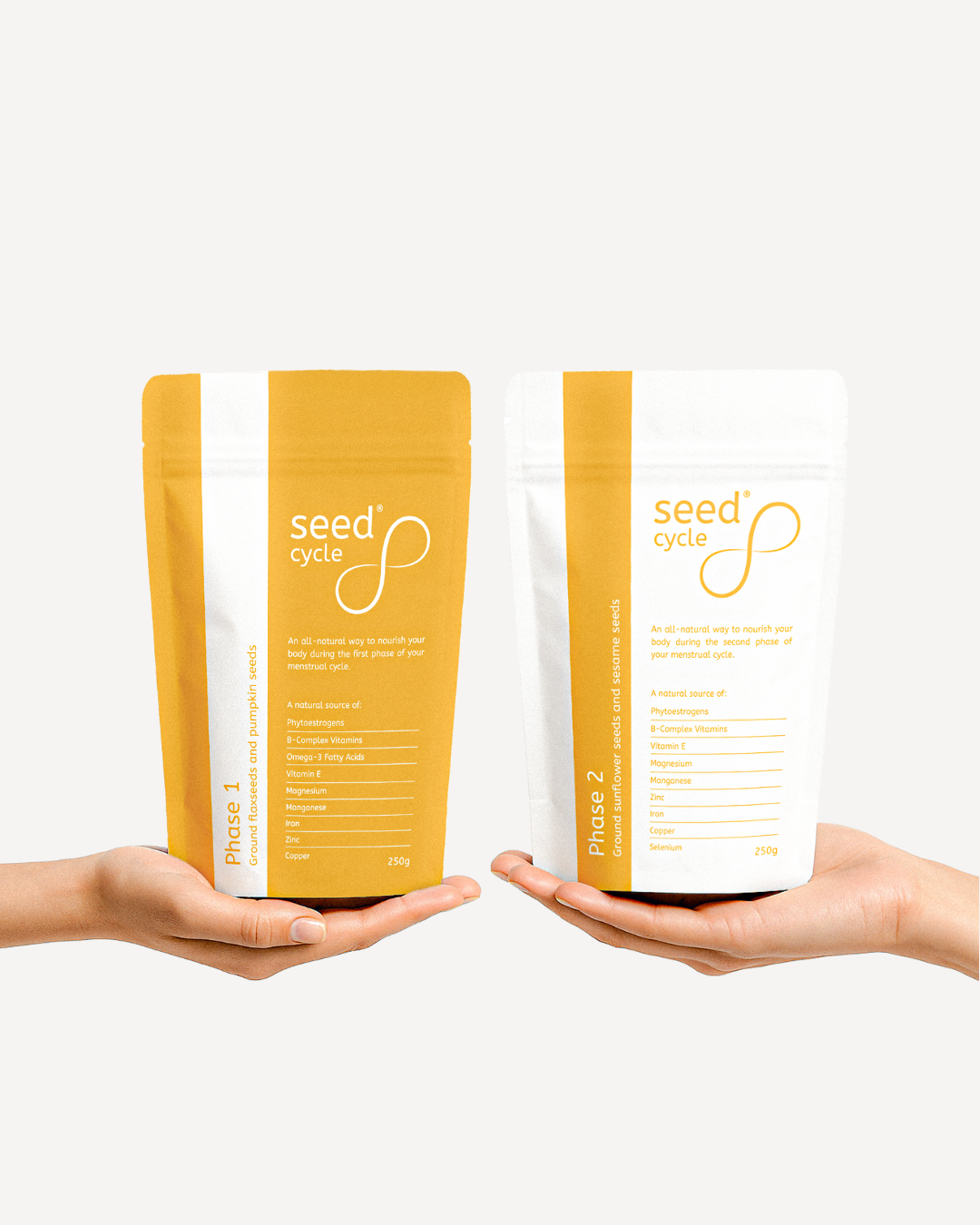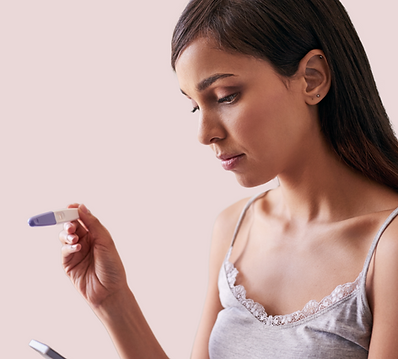
Seed Cycling for Fertility: Nourishing Your Body for Conception
Fertility is deeply connected to hormonal balance, and a well-functioning menstrual cycle plays a crucial role in conception.
Seed cycling offers a natural, food-based approach to supporting healthy ovulation, hormone regulation, and reproductive health by providing essential nutrients that contribute to fertility
How Hormones and Seed Cycling Impact Fertility
Fertility depends on a delicate balance of hormones—mainly oestrogen and progesterone—that guide each phase of the menstrual cycle. Seed cycling supports this natural rhythm by providing nutrients that may encourage hormonal balance and reproductive health.
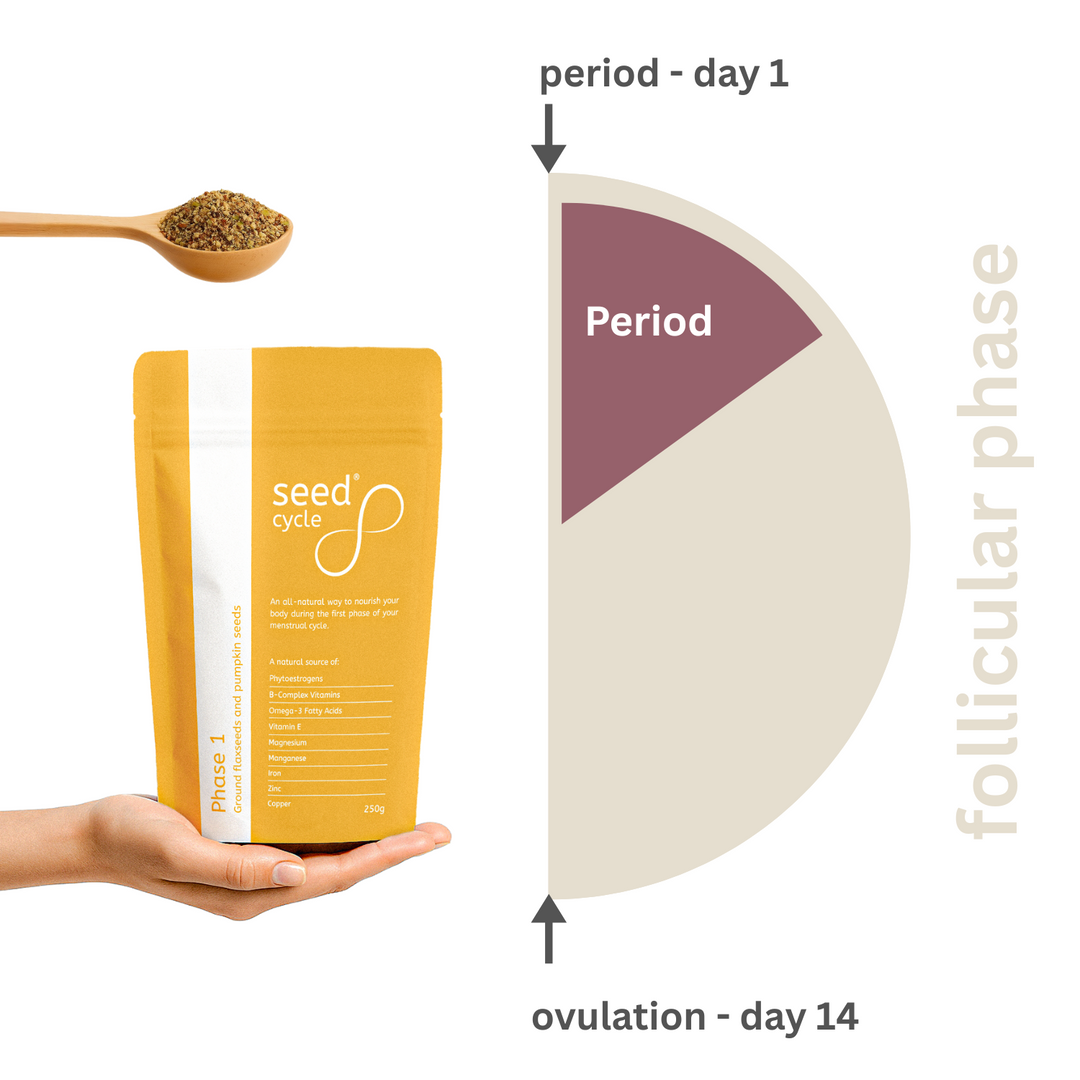
Days 1–14
Follicular Phase
Hormones: Oestrogen rises, stimulating follicle development and preparing the body for ovulation.
Seeds:
✔ Flaxseeds – Lignans support healthy oestrogen balance and ovulation.
✔ Pumpkin seeds – Zinc supports egg health and ovarian function, while B vitamins boost energy and stress resilience.
✔ Bother seeds are a natural source of omega-3 fatty acids, which help reduce inflammation and support uterine lining health.
Ovulation (around day 14)
Hormones: A surge in luteinizing hormone (LH) triggers the release of an egg.
Seeds:
✔ Flaxseeds and pumpkin seeds may help maintain oestrogen balance and optimise egg quality during this key fertility window.
Days 15-28
Luteal Phase
Hormones: Oestrogen rises, stimulating follicle development and preparing the body for ovulation.
Seeds:
Hormones: Progesterone rises, supporting implantation and early pregnancy if conception occurs.
Seeds:
✔ Sesame seeds – Lignans may support progesterone activity, vital for implantation.
✔ Sunflower seeds – Provide vitamin E and selenium, which contribute to uterine lining quality and egg health.
✔ Both – Supply magnesium and omega-6 fatty acids, which aid hormone production, relaxation, and stress management.
*Cycle lengths vary, with healthy cycle lengths ranging between 21–35 days.
Tracking your unique cycle helps you identify fertile windows and understand your body’s natural rhythm.
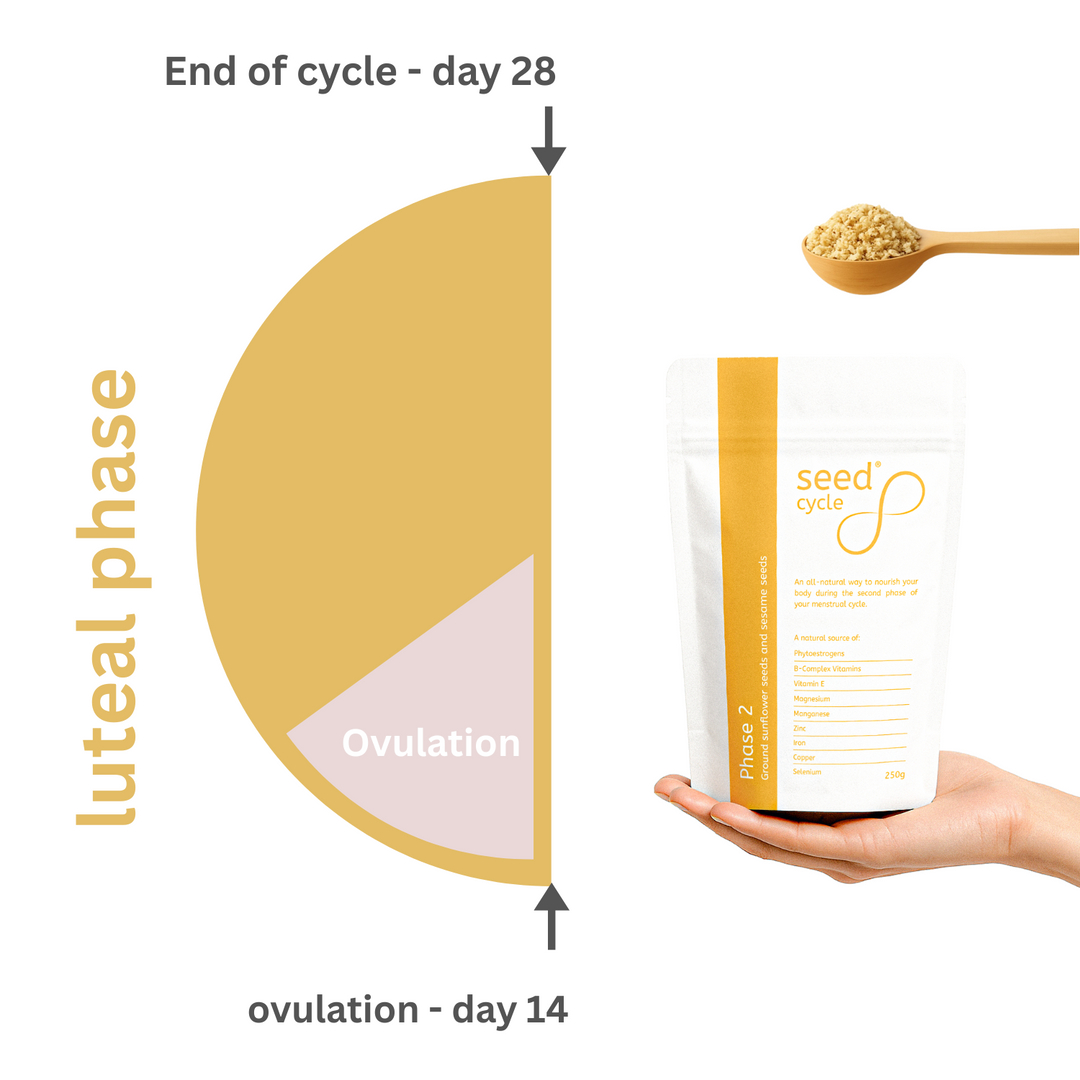
Key Benefits of Seed Cycling for Fertility
✔ Promotes regular ovulation by supporting healthy oestrogen and progesterone levels.
✔ Contributes to egg quality with zinc, selenium, and essential fatty acids.
✔ Supports uterine lining development, improving chances of implantation.
✔ Reduces inflammation that may contribute to hormonal imbalances or conditions like PCOS.
✔ Contributes to hormone detoxification by supporting liver function with lignans and vitamin E.
✔ Balances mood and reduces stress, which can impact reproductive health.
✔ Regulates cycles naturally, making it easier to track ovulation and fertile windows.
When to Start Seed Cycling for Fertility
If you have a regular cycle, consume Phase 1 (ground, organic flax & pumpkin) for the first half of your cycle and Phase 2 (ground, organic sesame & sunflower) for the second half.
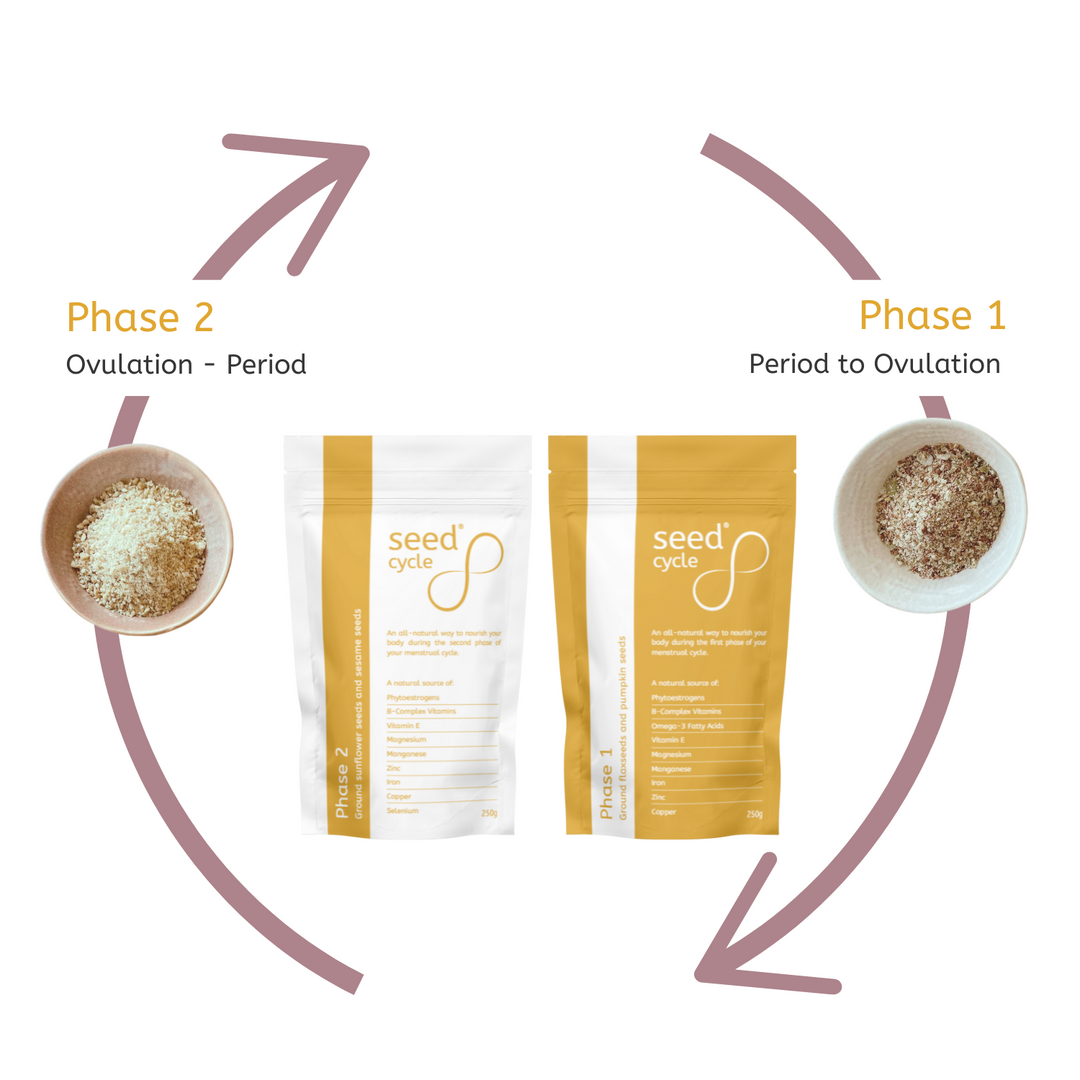
What if My Cycle is Irregular?
If your cycles are irregular or you don’t ovulate regularly, seed cycling may help regulate hormones over time. If you're unsure about your cycle timing, simply start Phase 1 with the New Moon (for two weeks) and switch to Phase 2 with the Full Moon (for two weeks) - aligning with nature’s rhythm. Learn more.
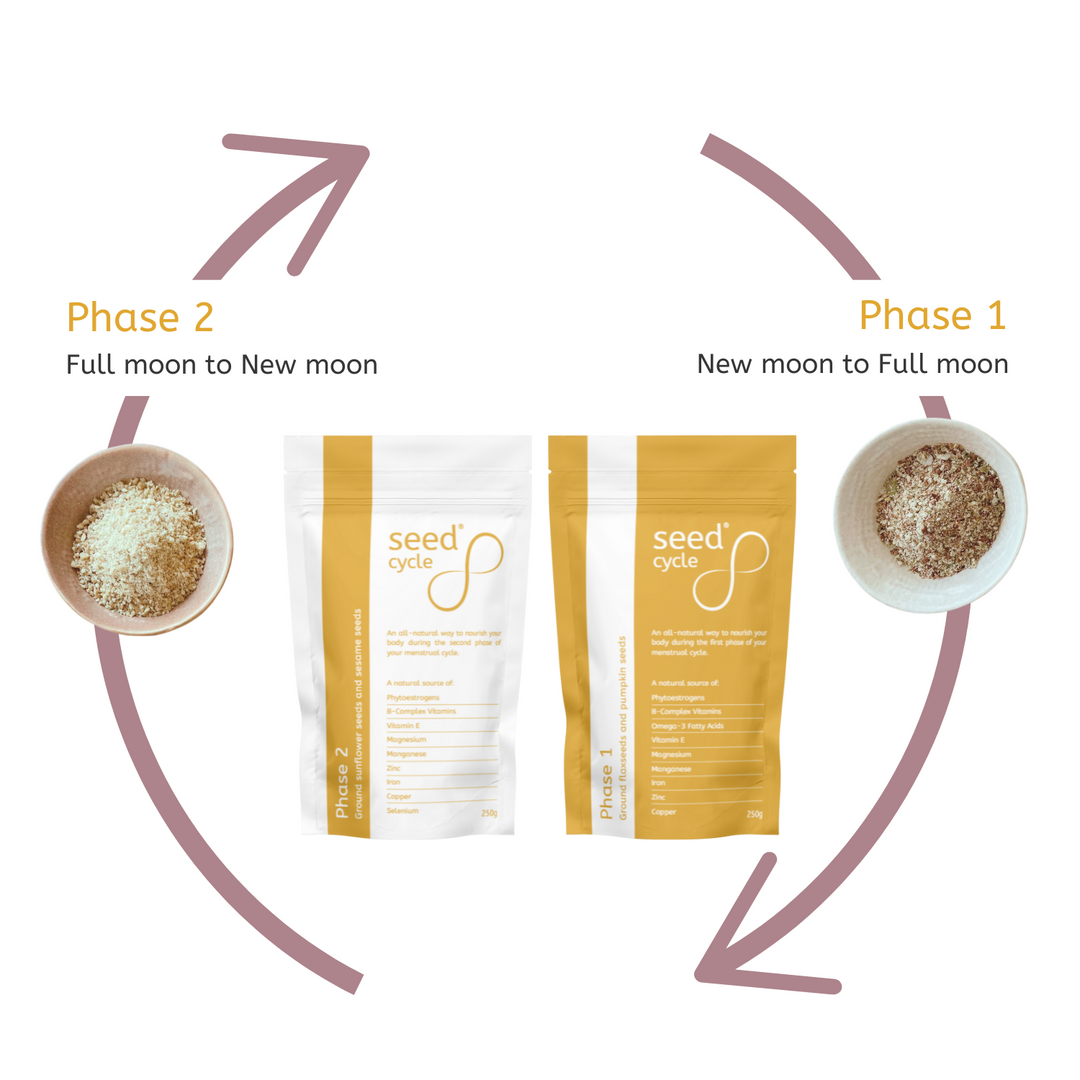
Preparing Your Body for Conception Naturally
Optimising fertility takes time, and nourishing your body with hormone-supporting nutrients is one of the best things you can do. Seed cycling should be followed consistently for at least three consecutive months to allow your body time to regulate hormones and establish a balanced cycle.
By incorporating Seed Cycle Blends into your daily routine, you can take a natural and effective step towards balancing hormones and supporting reproductive health.
Try our Seed Cycle Blends today and give your body the nourishment it needs for a healthy conception journey!
Should You Consult Your Healthcare Provider?
Seed cycling is a natural approach to supporting fertility, but if you have underlying conditions like PCOS, thyroid issues, or a history of infertility, consult your doctor or fertility specialist before making dietary changes.




